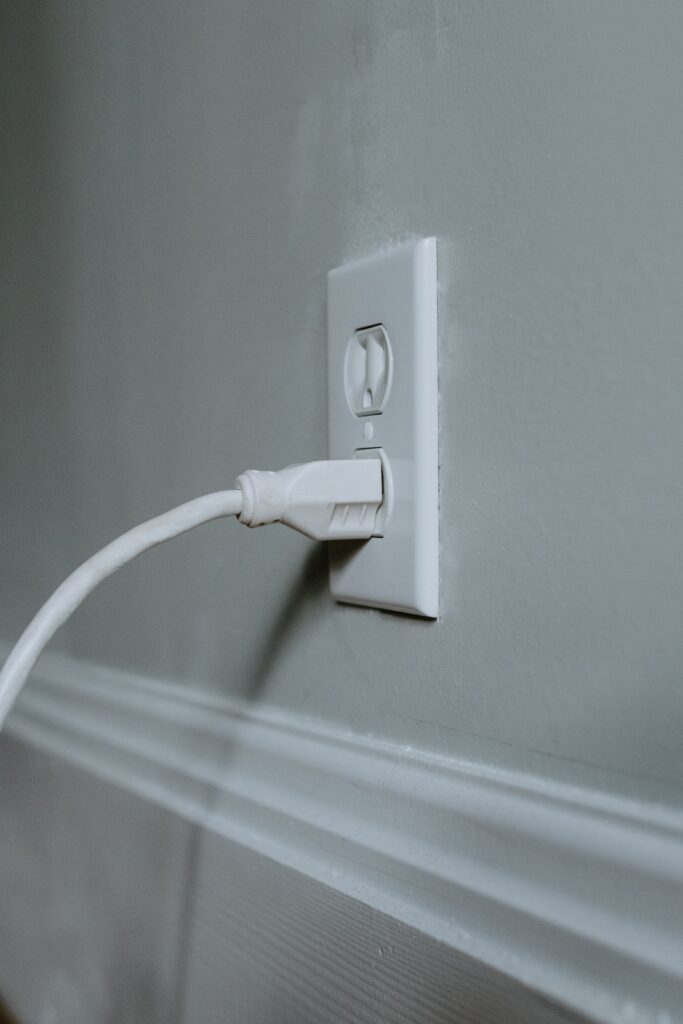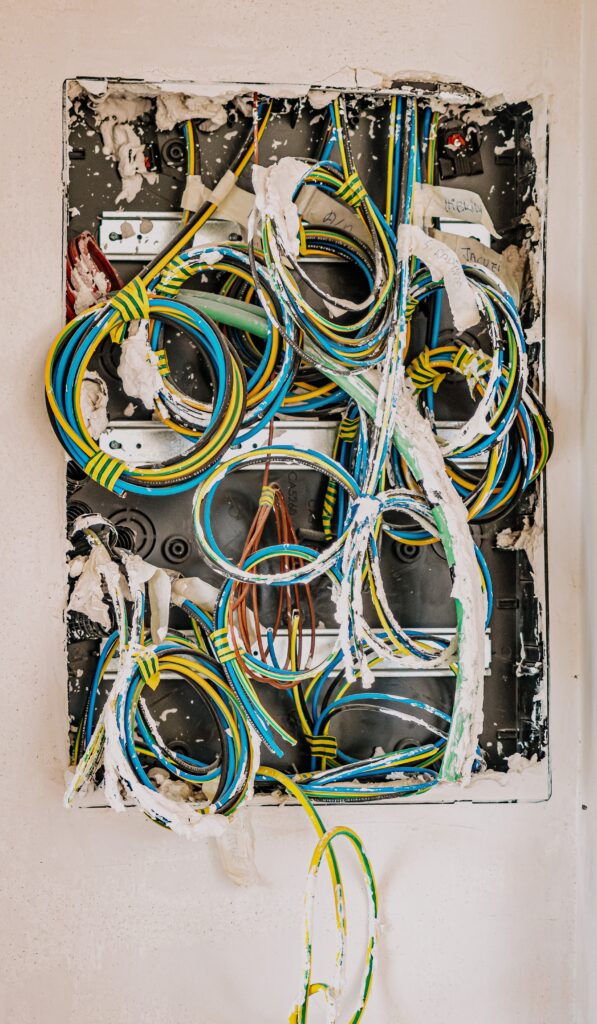Maintaining the efficiency of your solar panels is crucial in maximizing their energy output. While solar panels are designed to be low-maintenance, keeping them clean can significantly impact their performance. By removing dirt, debris, and other residues that accumulate over time, you can ensure that your solar panels continue to harness the sun’s energy effectively. So, the question remains: do you have to clean your solar panels? Let’s explore the reasons behind regular panel cleaning and understand the benefits it brings.

Understanding the Need for Cleaning Solar Panels
Determining factors for cleaning
When it comes to maintaining the efficiency of your solar panels, cleaning is an important aspect. Several factors determine the need for cleaning, including the level of dirt and debris accumulation, the environmental conditions in your area, and the tilt angle of your panels. By understanding these factors, you can effectively determine when your solar panels require cleaning.
Why clean solar panels?
Cleaning your solar panels on a regular basis is crucial to ensure optimal performance and efficiency. When dirt, dust, bird droppings, leaves, or other debris accumulate on the surface of the panels, they can block sunlight and hinder the generation of electricity. By keeping your solar panels clean, you allow maximum sunlight exposure, which translates into greater energy production and increased savings on your electricity bill.
How dirt affects panel efficiency
Dirt and debris on solar panels can substantially impact their efficiency. As dirt accumulates on the surface, it forms a layer that acts as a barrier between the sunlight and the photovoltaic cells of the panels. This barrier reduces the amount of sunlight reaching the cells, resulting in decreased electricity generation. Studies have shown that even a thin layer of dirt can cause a significant drop in solar panel efficiency, sometimes up to 20%. Therefore, it is vital to keep your panels clean to optimize their performance.
Natural Cleaning and Its Impact
Effect of rain on solar panels
Rainfall is often seen as a natural cleaning mechanism for solar panels. When it rains, the water typically washes away dust, pollen, and other light debris from the surface of the panels. This can help restore some of the lost efficiency caused by dirt buildup. However, the effectiveness of rain as a cleaning method depends on various factors, such as the intensity and frequency of rain in your area.
Limitations of relying on rain for cleaning
While rain can provide some level of cleaning for solar panels, it may not be sufficient or consistent enough to maintain optimal efficiency. In areas with low rainfall or during prolonged dry spells, relying solely on rain to clean your panels may not be practical. The intermittent showers may not be able to effectively remove heavy dirt or stubborn stains, which can continue to hinder the performance of your solar panels. Therefore, regular manual cleaning or other cleaning methods may still be necessary.
When Should You Clean Your Solar Panels?
Frequency required for cleaning
The frequency of cleaning your solar panels depends on several factors, including the environmental conditions in your area and the level of dirt accumulation. As a general guideline, it is recommended to clean your panels at least once or twice a year. However, areas with high dust or pollution levels may require more frequent cleaning. Additionally, it is advisable to clean your panels after significant weather events, such as dust storms or heavy rains, which can leave behind a layer of debris.
Seasonal considerations for cleaning
Seasonal changes can also impact the cleaning requirements for your solar panels. In regions with distinct seasons, it is helpful to clean your panels before the seasons where sunlight exposure is crucial, such as summer or winter. This ensures that your panels are in top condition to maximize energy production during peak times. Regular seasonal cleaning can help remove any built-up dirt or residue that may have accumulated over the previous months.
Environmental and location factors affecting cleanliness
The cleanliness of your solar panels can also be influenced by environmental and location-related factors. For example, if your panels are installed in an area with high bird activity or surrounded by trees, there is a higher chance of bird droppings or falling leaves accumulating on the surface. In coastal regions, salt spray can deposit on the panels and hinder their performance. Similarly, areas with high levels of air pollution or industrial emissions may result in more rapid dirt buildup. Considering these factors is important when determining the cleaning needs of your solar panels.
Self-Cleaning Solar Panels: Modern Solution
How self-cleaning solar panels work
Self-cleaning solar panels employ innovative technologies to minimize the need for manual cleaning. These panels are designed with special coatings or surfaces that repel dirt and prevent it from adhering to the surface. Additionally, some self-cleaning systems incorporate mechanisms such as water sprayers or brushes that automatically clean the panels at regular intervals. The panels may also utilize the natural movement of rainwater to effectively wash away any accumulated dirt.
Benefits of self-cleaning solar panels
Investing in self-cleaning solar panels offers several advantages. Firstly, they can significantly reduce the maintenance and cleaning efforts required, saving you time and effort. The automated cleaning mechanisms ensure that your panels remain clean and efficient, even in areas with high levels of dirt or pollution. Self-cleaning panels can also enhance the longevity of your solar system, as the reduced dirt buildup minimizes the risk of potential damages or inefficiencies. Overall, self-cleaning solar panels provide a convenient and hassle-free solution to maintaining the optimal performance of your solar energy system.
Cost considerations for self-cleaning solar panels
While self-cleaning solar panels offer numerous benefits, it is essential to consider the cost implications of installing such systems. Self-cleaning panels typically come at a higher upfront cost compared to traditional panels. However, it is important to evaluate the long-term savings and convenience they offer. Depending on the environmental conditions in your area and the required frequency of manual cleaning, the investment in self-cleaning panels may prove worthwhile. Consider consulting with a solar panel professional to determine the cost-effectiveness of self-cleaning panels for your specific situation.

DIY Cleaning Method and Practice
When to opt for DIY method
If you prefer a hands-on approach or are mindful of the costs involved in hiring professional cleaning services, you can opt for a DIY method to clean your solar panels. DIY cleaning usually works best for situations where the panels are easily accessible, not located at a significant height, and the cleaning needs are manageable. Furthermore, if you are attentive to the cleaning schedule and actively maintain the cleanliness of your panels, DIY cleaning can be an effective and cost-saving solution.
Tools required for DIY cleaning
When cleaning solar panels on your own, it is important to gather the necessary tools and equipment. The items commonly required include a soft brush or sponge, a non-abrasive cleaning solution, a hose or bucket of water, and a squeegee or microfiber cloth for drying. Ensure that the brush or sponge you use is suitable for delicate surfaces and does not scratch or cause damage to the panels. Additionally, avoid using aggressive cleaning agents that may harm the coating or surface of the panels.
Steps for cleaning solar panels
To clean your solar panels effectively, follow these steps:
- Make sure your panels are cool to the touch before starting.
- Begin by removing any loose dirt or debris using a soft brush or sponge.
- Mix a mild cleaning solution with water in a bucket or spray bottle. Avoid using harsh chemicals or abrasive cleaners.
- Apply the cleaning solution to the panels using the brush or sponge, gently scrubbing to remove stubborn dirt or stains.
- Rinse the panels thoroughly with clean water, either using a hose or sponge.
- If necessary, dry the panels using a squeegee or microfiber cloth to prevent water spots or streaks.
- Regularly inspect the panels after cleaning to ensure they are free from any residue or remaining dirt.
Professional Cleaning Services: When to Hire?
Assessing when professional help is needed
There are instances when hiring professional cleaning services becomes necessary. If your solar panels are installed at a significant height or in a hard-to-reach location, attempting DIY cleaning can be unsafe and impractical. Professional cleaners have the expertise, equipment, and safety measures in place to effectively clean high or inaccessible panels. Additionally, if you lack the time, physical ability, or the necessary tools for DIY cleaning, professionals can ensure thorough and efficient cleaning of your solar panels.
Cost-benefit analysis of hiring professionals
When considering professional cleaning services, it is important to conduct a cost-benefit analysis. While hiring professionals may involve an expense, it is essential to assess the potential returns and benefits. Professional cleaning can save you time and effort, ensuring that your solar panels are cleaned to the highest standard. By maximizing the efficiency and performance of your panels, you can potentially offset the cost of hiring professionals through the increased energy production and savings on your electricity bill.
Finding reputable solar panel cleaning companies
Finding reputable and reliable solar panel cleaning companies is crucial to ensure quality service. Look for companies with experience in solar panel cleaning and a proven track record of customer satisfaction. Consider reading reviews or seeking recommendations from fellow solar panel owners. Additionally, inquire about the cleaning methods and techniques used by the company to ensure they align with industry best practices. Transparency, professionalism, and attention to safety should also be key factors to consider when selecting a cleaning service provider.

Safety Measures During Solar Panel Cleaning
Safety tips for DIY cleaning
When attempting DIY cleaning of solar panels, it is important to prioritize safety. Here are some safety tips to keep in mind:
- Always ensure that the panels are cool and turned off before cleaning to avoid any electrical hazards.
- Use proper personal protective equipment (PPE) such as gloves, goggles, and non-slip footwear to protect yourself during the cleaning process.
- Avoid standing on the panels or placing excessive pressure on them to prevent damage.
- Be cautious while working on ladders or any elevated surfaces. Maintain a stable footing and secure the ladder properly.
- If the panels are not easily reachable, consider using long-handled cleaning tools or an extendable cleaning pole to maintain a safe distance from the panels.
Understanding hazards of solar panel cleaning
Cleaning solar panels can pose various hazards if not done with caution. The most significant risk is the possibility of an electric shock if the panels are not powered off before cleaning. Additionally, working at heights or on slippery surfaces can increase the chances of falls or injuries. It is essential to be aware of these hazards and take appropriate safety measures to mitigate them. If you are uncertain or uncomfortable with the risks involved, it is advisable to seek professional cleaning services instead.
Solar Panel Maintenance and Cleaning
Role of regular maintenance
Apart from cleaning, regular maintenance plays a vital role in ensuring the long-term efficiency and reliability of your solar panel system. Maintenance tasks may include inspecting the wiring, checking for loose connections, monitoring the performance of inverters, and inspecting for any signs of physical damage or degradation. By conducting regular maintenance, you can identify and address any potential issues early on, preventing larger problems and maximizing the lifespan of your solar panels.
Maintenance tips for long-term efficiency
To maintain the long-term efficiency of your solar panel system, consider the following tips:
- Regularly monitor the performance of your solar panels, keeping an eye on any significant drops in electricity generation.
- Inspect the panels for any signs of physical damage, such as cracks or scratches, and repair or replace them as needed.
- Keep the surrounding area clean and free from debris or shading objects that can block sunlight.
- Check the connections and wiring periodically to ensure they are secure and functioning properly.
- If you notice any abnormalities or concerns, consult a professional technician or your solar panel installer for assistance.
Cost of neglecting solar panel maintenance
Neglecting the maintenance of your solar panel system can have costly consequences. Without regular inspections and upkeep, minor issues can escalate into major problems, leading to reduced performance, decreased energy generation, and potentially expensive repairs. Additionally, if maintenance is not conducted on a proactive basis, you may miss out on warranty coverage or face higher repair costs due to voided warranties. By investing time and effort in regular maintenance, you can save money in the long run and ensure the continued efficiency of your solar panels.
Addressing Myths About Solar Panel Cleaning
Debunking common misconceptions
There are several myths and misconceptions surrounding solar panel cleaning that need to be addressed. One common myth is that rain alone is sufficient to keep solar panels clean. As discussed earlier, while rain can provide some level of cleaning, it may not be consistent or thorough enough, especially in areas with low rainfall or during extended dry periods. Another misconception is that cleaning solar panels is a complex and risky process. With proper safety precautions and the right tools, cleaning solar panels can be a straightforward and safe task.
Fact-checking solar panel cleaning claims
With the increasing popularity of solar energy, there are various claims and products in the market that promise effortless cleaning or enhanced performance. It is important to fact-check such claims before investing in any cleaning solutions or systems. Consider consulting with reputable solar panel professionals or referring to industry research to ensure that the cleaning methods or products you choose are proven to be effective and safe. Being vigilant and well-informed can help you make informed decisions and avoid unnecessary expenses.
Conclusion: The Importance of Keeping Solar Panels Clean
Recap of salient points
In conclusion, cleaning your solar panels is essential to maintain their efficiency and maximize their electricity generation. Dirt and debris can significantly hinder the performance of your panels by blocking sunlight. While rain can provide some cleaning, it may not be sufficient in all situations. Factors such as the level of dirt accumulation, the frequency of rain, and environmental conditions all contribute to the need for manual cleaning. Self-cleaning solar panels offer a modern solution, but their cost may vary based on individual circumstances.
Final thoughts on keeping solar panels clean and efficient
Regular cleaning, whether through DIY methods or professional services, is crucial for the long-term efficiency and performance of your solar panel system. By understanding the factors that contribute to the need for cleaning and considering the environmental conditions in your area, you can determine the most suitable cleaning approach. Remember to prioritize safety during the cleaning process, and conduct regular maintenance to identify and address any potential issues. By keeping your solar panels clean and well-maintained, you can enjoy optimal energy production and maximize the benefits of solar power.




